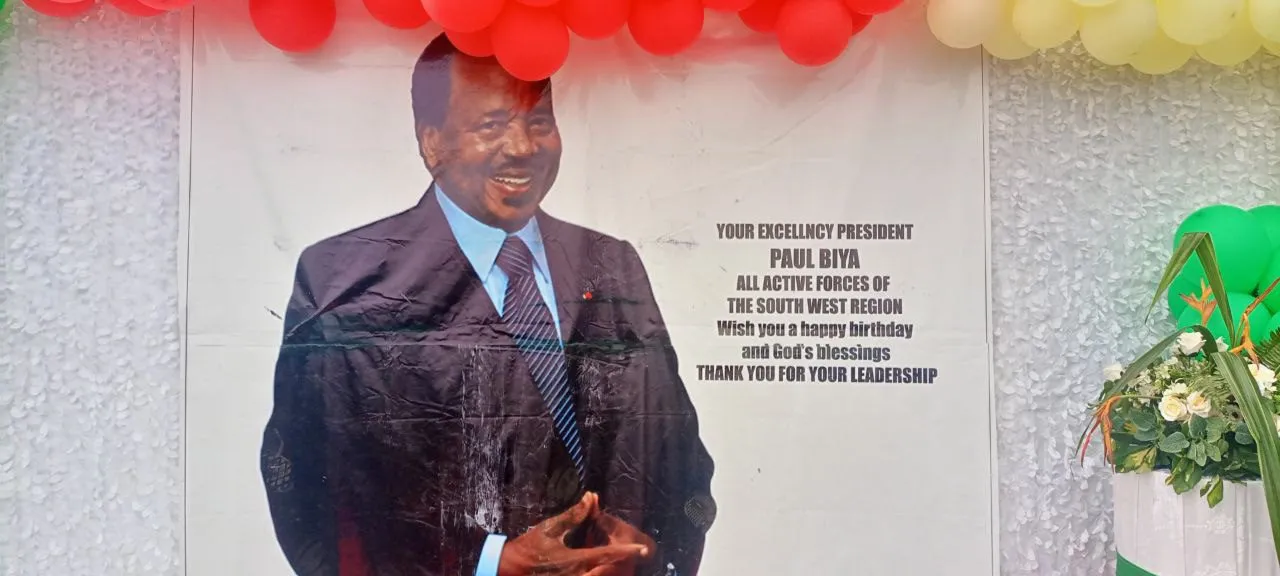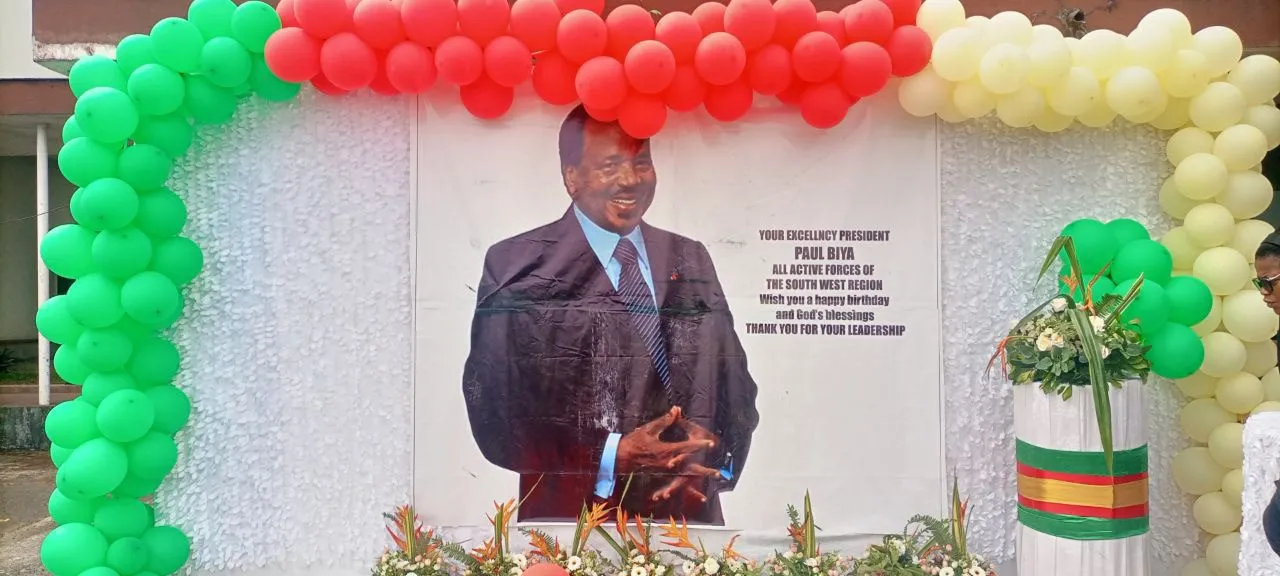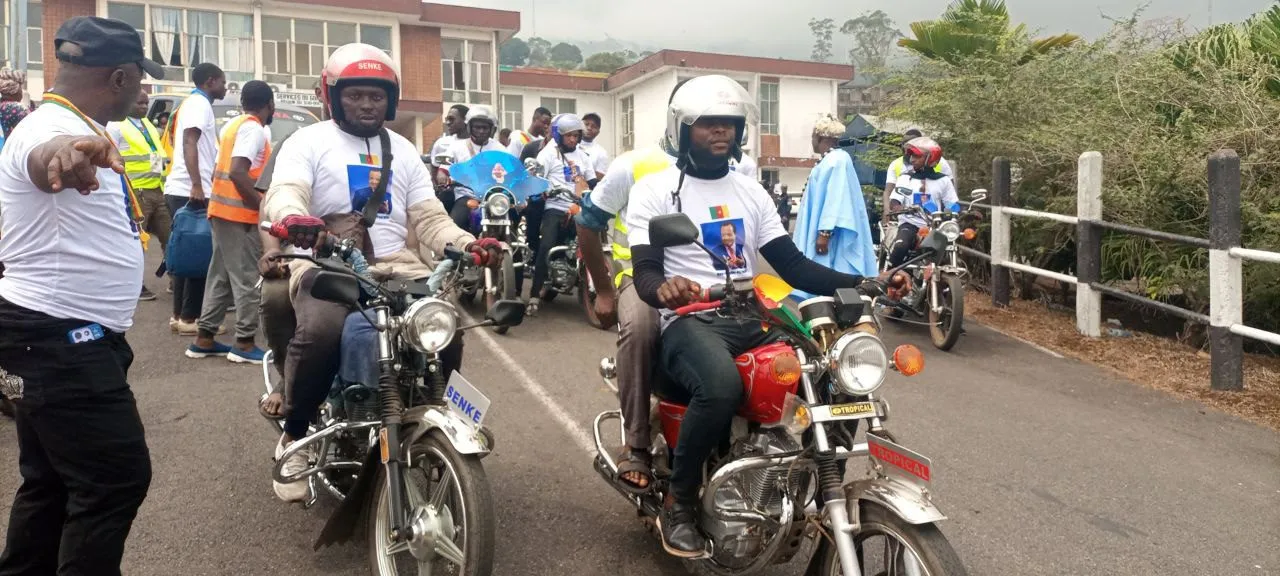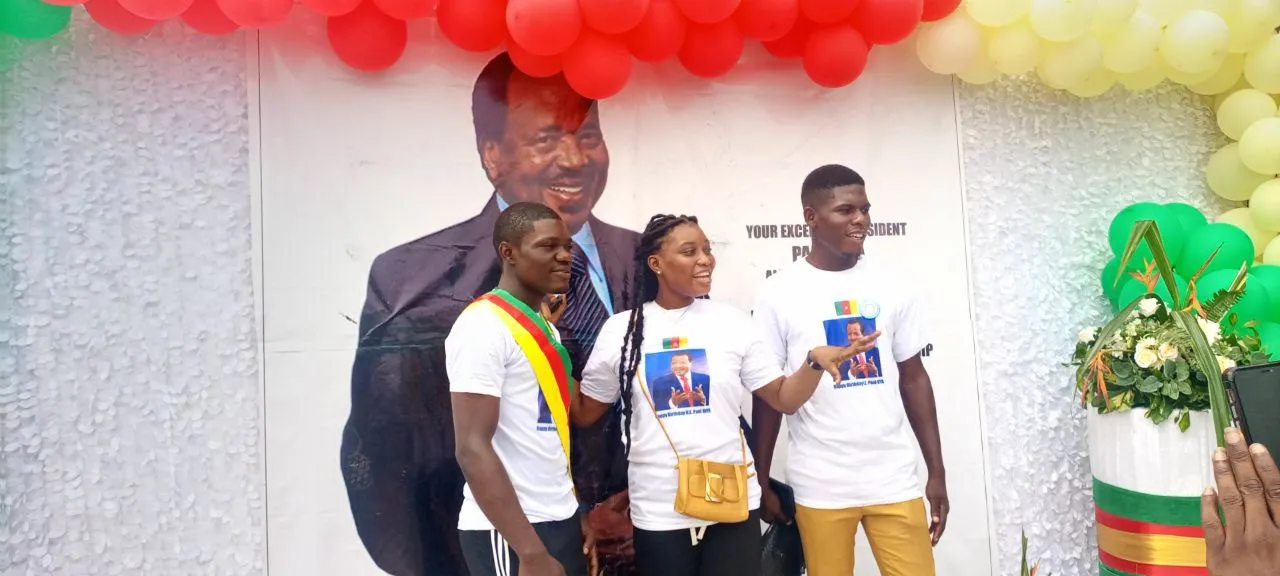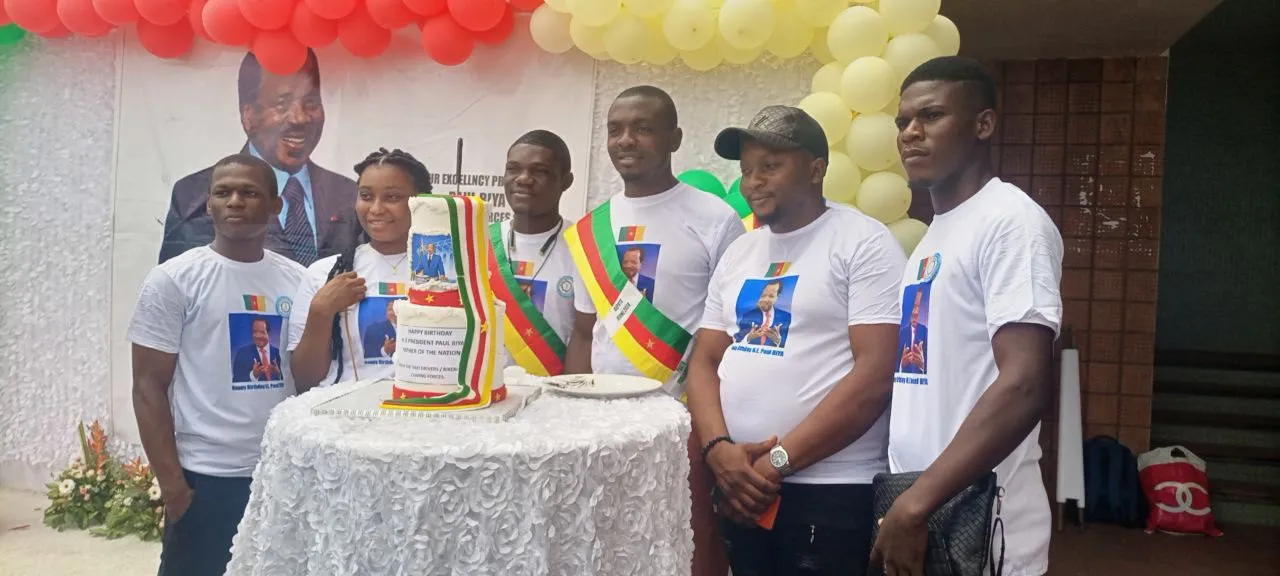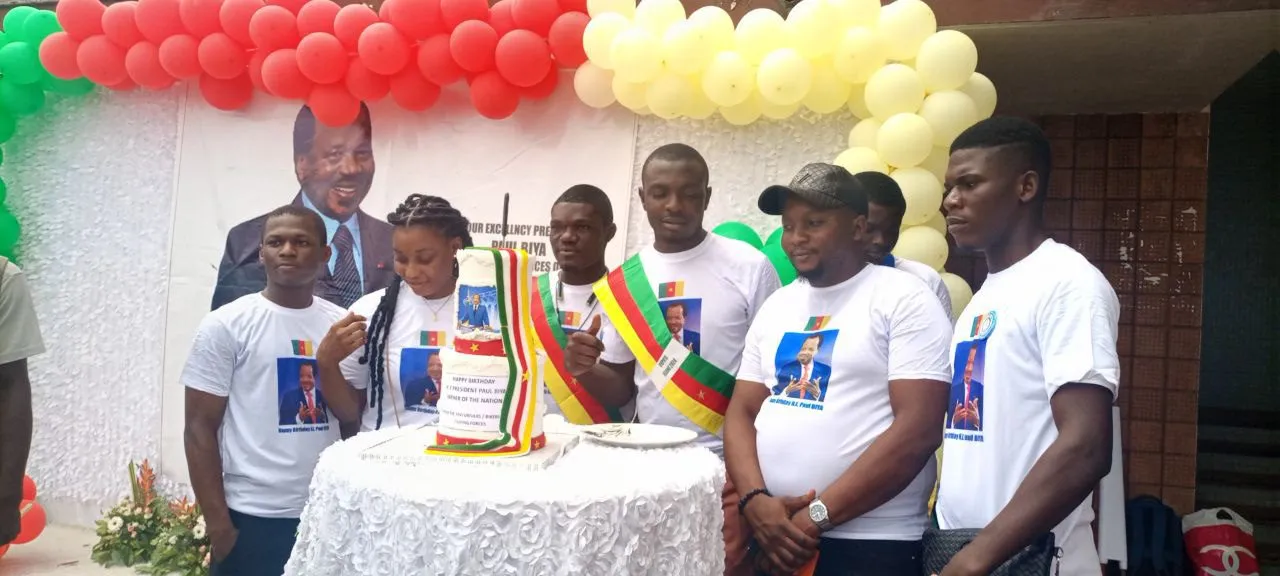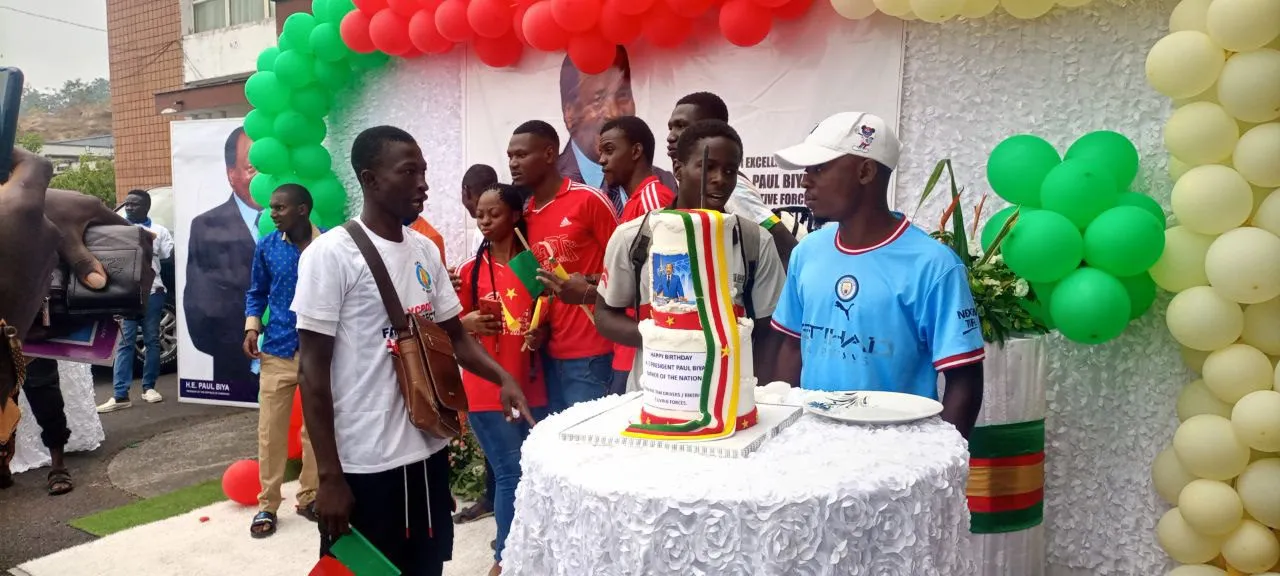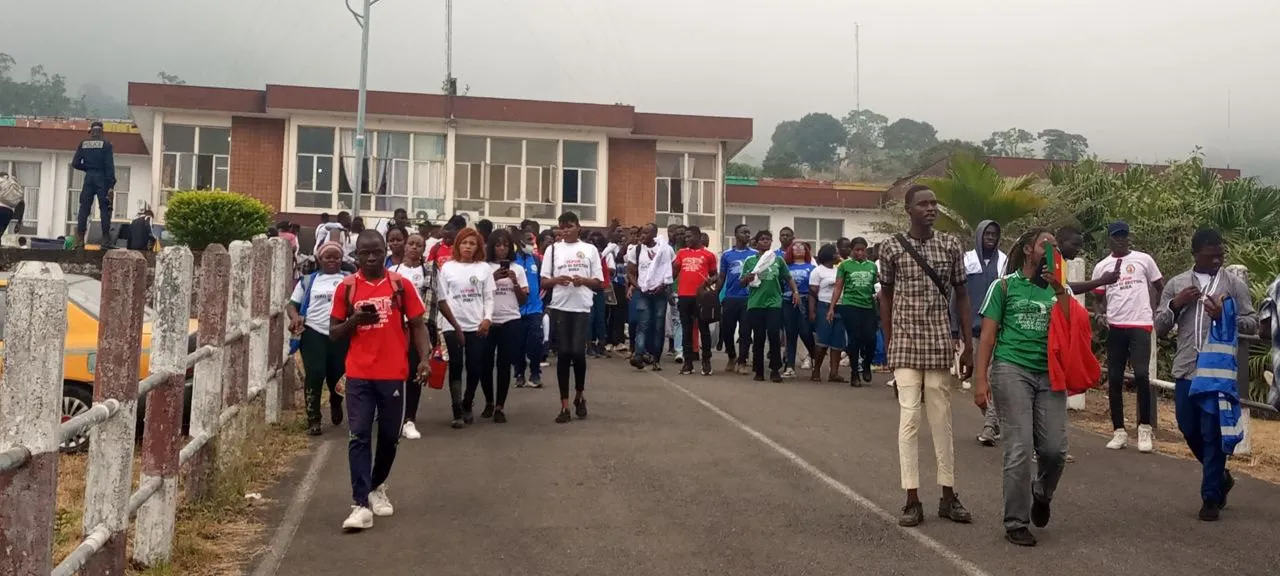As Cameroon’s President Paul Biya celebrated his 91st birthday on Tuesday, a group of youths in the South West region gathered to show their strong support and even voiced their desire for his re-election in next year’s polls. However, the passionate chants of the crowd concealed a more profound truth, underscoring the intricate and sometimes conflicting stories surrounding Biya’s enduring tenure.
A diverse range of individuals, including youth associations, taxi drivers, motorbike riders, and other groups, came together for a celebratory gathering at the Southwest Governor’s office. Hon. Donald Malomba, of Buea Urban, echoed the collective sentiment, declaring, “Democracy is better under your stewardship. You can count on us, and we can count on you.” He expressed their sincere hopes for the President’s long life, good health, and continued achievements.
On behalf of Biya, Governor Bernard Okalia Bilai expressed his gratitude for the young people’s bravery in standing up to acts of violence. He also extended his gratitude for their unwavering support. However, a closer look reveals a more nuanced picture.
Only Wishes, No Demands To Address Plight
A significant number of these young individuals have grown up with Biya as their president, as they were born during the first 15 years of his tenure. This reality prompts inquiries about their familiarity with other leaders or the actual consequences of Biya’s policies on their daily existence.
The ongoing crisis in the Anglophone regions has had a significant impact on the younger generation. Unemployment continues to be a pressing issue, compelling individuals to explore perilous migration paths in pursuit of a more promising tomorrow. The celebratory messages failed to acknowledge the daily challenges faced by taxi drivers and motorbike riders, including police harassment and inadequate infrastructure.
Biya, a figure with a long-standing tenure and a significant impact on Africa, leaves behind a multifaceted legacy. His supporters admire his dedication and forward-thinking approach to national development. However, there are critics who raise concerns about his advanced age, the prevalence of older figures in his government, and potential implications for democratic freedoms.
If Biya decides to run in 2025 and is successful, he would be 99 years old by the time his term concludes. The potential implications of this situation are cause for concern regarding the future of Cameroon’s leadership and their capacity to effectively tackle the urgent issues confronting the country’s youth, especially in the regions affected by the crisis.
The celebratory display on Biya’s birthday presents a snapshot of divided opinions. Although many young Cameroonians such as these South West Youths display unwavering loyalty, their daily lives are characterised by hardship and a lack of opportunities. With the 2025 elections on the horizon, the focus of national conversation will undoubtedly revolve around Biya’s legacy and the future of Cameroon’s leadership.



